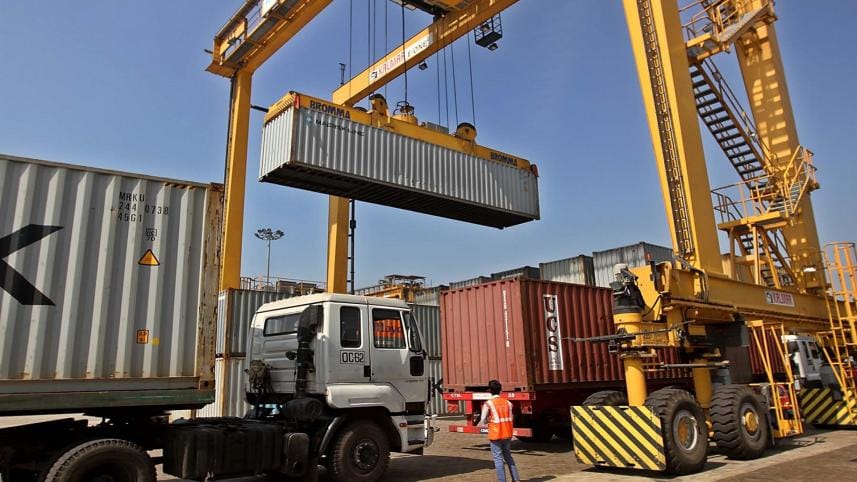Ctg port’s container handling down in 2023

The Chattogram port has experienced a 2.92 percent year-on-year drop in the number of containers handled in the just concluded year whereas a slight growth in cargo movement, which reflects a slowdown in the country's foreign trade.
Businesses blamed a worldwide economic downturn influenced by the Russia-Ukraine conflict and Middle East crisis alongside domestic issues such as an acute shortage of the US dollar and high inflation.
They, however, opined that the slowdown had taken place on a limited scale in spite of the many challenges the economy went through in 2023.
They are also optimistic of a rebound in the country's economy this year if proper financial governance could be ensured.
About 92 percent of Bangladesh's seaborne trade is conducted through the country's premier seaport of Chattogram. The port handles 98 percent of the total containerised goods transport in the country.
In 2023, container throughput amounted to 30.51 lakh TEUs (twenty-foot equivalent units), according to data from the traffic department of Chattogram Port Authority (CPA).
In 2022, it was 31.43 lakh TEUs.
Meanwhile, 12.02 crore tonnes of cargo were handled, a record high, albeit by a margin of only 0.47 per cent from that last year.
This was the second lowest growth for the port in the past decade.
The lowest was 0.13 per cent in 2020, when the pandemic had surfaced.
The port officials, staff and workers, with their skill and experience, managed to retain the continuity in cargo and container handling in spite of the adverse economic situation globally, said CPA Chairman Rear Admiral Mohammad Sohail.
It shows the country's economic resilience amidst adversities, he opined.

A total of 4,103 ships had arrived at the port in 2023.
This was a 5.92 percent decrease from that in 2022.
The global economy has been experiencing a slowdown since the pandemic and it deteriorated due to the Russia-Ukraine conflict, said Abul Bashar Chowdhury, chairman of BSM Group, one of the leading commodity importers.
But devaluation of the local taka against the US dollar, a dollar shortage and inflation were major factors that slowed down the import of all types of goods, including food items, commodities as well as industrial raw materials, he said.
The private sector has not yet lost courage, the head of the Khatunganj-based firm told The Daily Star.
He emphasised on the need for the government, which would be formed in an upcoming national election, to address these issues.
Bangladesh is not beyond the global economic crisis and the country also has its own crisis of high inflation and a lack of US dollars, said Mohammed Amirul Haque, managing director of Premier Cement.
The construction sector was seriously affected and all throughout there was negative growth, he said.
"If steps can be taken to control these two major issues of high inflation and dollar crisis, I don't see the situation turning worse," he said.
The amount of cargo and containers handled was not that low considering it was a very tough year for the country's economy and business, said Syed M Tanvir, managing director of leading denim exporter Pacific Jeans.
He looks forward to a very prosperous 2024 and hoped for business stability and confidence to grow.
"If strong financial governance can be ensured in the overall economy, we will definitely do better," he opined.




 For all latest news, follow The Daily Star's Google News channel.
For all latest news, follow The Daily Star's Google News channel.
Comments